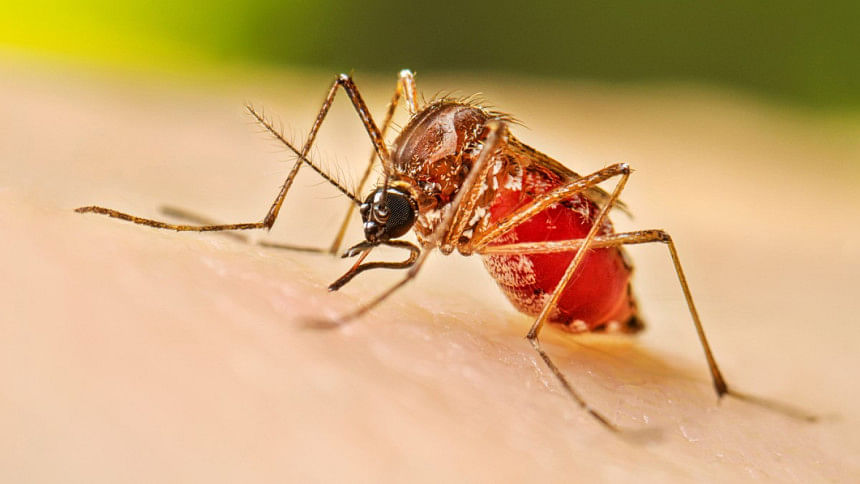Home remedies for dengue viral infection

Dengue, an Aedes mosquito-borne viral infection, has been a crucial public health concern during the monsoon in our country for its worrying statistical value. Individuals who have recovered from primary infection from one serotype of dengue virus get a lifelong immunity against the same serotype, but the risk of developing severe dengue would be higher following infection by any other serotypes (secondary infection).
Severe dengue is potentially fatal. Severe dengue, characterised by vascular leakage due to disruption of the endothelial cell layer in the vascular system, is preceded by thrombocytopenia (rapid fall in platelet count), indicating disruption of thrombopoiesis. These processes in the pathogenesis indicate the requirement of both immunomodulators and antivirals for treatment. Despite its life-threatening complications, there is still no specific antiviral medication available for dengue infection.
However, researchers continue to actively pursue identifying potent compounds with promising anti-dengue activities via in-depth understanding of dengue pathogenesis. Medicinal plants, which are known to possess both immunomodulatory and antiviral activities, have long been considered as potential alternatives for the management of viral fever worldwide.
Among all the potential medicinal plants considered for dengue treatment, papaya has been studied extensively. Papaya is used to treat several digestive disorders, as it has its antimicrobial, antimalarial, antihelminthic, liver-protective, and immunomodulatory effects. Several compounds, such as papain, flavonoids, L-tocopherol, ascorbic acid, and others present in papaya leaves, possess therapeutic properties. The antioxidants present in papaya leaves exhibit anti-tumour and immunomodulatory effects. Metabolites in papaya leaf extract such as carpaine and quercetin are known to possess anti-malarial and anti-dengue activity. Carpaine is the principal alkaloid component contained in the papaya leaf extract, and it has been reported to be a major contributor towards anti-thrombocytopenic properties. Carpaine also possesses antitumor activity and antihelminthic activity. Papaya leaves also contain chemical compounds, like pseudo-carpaine, which impart a bitter taste to the leaves.
Use of papaya leaf extract to increase the platelet count in dengue-affected patients is a topic of debate. Whether the natural increase in the platelet count observed in dengue patients after the defervescence phase is being mistaken as the effect of papaya leaves has been addressed by several studies. The anecdotal evidence is supported by studies indicating a rapid increase in platelet count in a test group of dengue patients following administration of papaya leaf extract. Thrombocytopenic mice treated with papaya leaf extract showed increased levels of thrombopoietin, a chemical that enhances platelet production.
Papaya leaf extract has also been reported to exert significant inhibition of haemolysis along with red blood cell membrane stabilisation. Thus, the immunomodulatory effect of papaya leaf extract, particularly with regard to the platelet count enhancing effect, has been established.
In this context, papaya leaf juice seems to be a potential candidate against dengue viral infection.
The writers are the assistant professors of neonatology at the Institute of Child & Mother Health (ICMH), Matuail, Dhaka, and a public health specialist, respectively. Email: [email protected], [email protected]

 For all latest news, follow The Daily Star's Google News channel.
For all latest news, follow The Daily Star's Google News channel. 



Comments